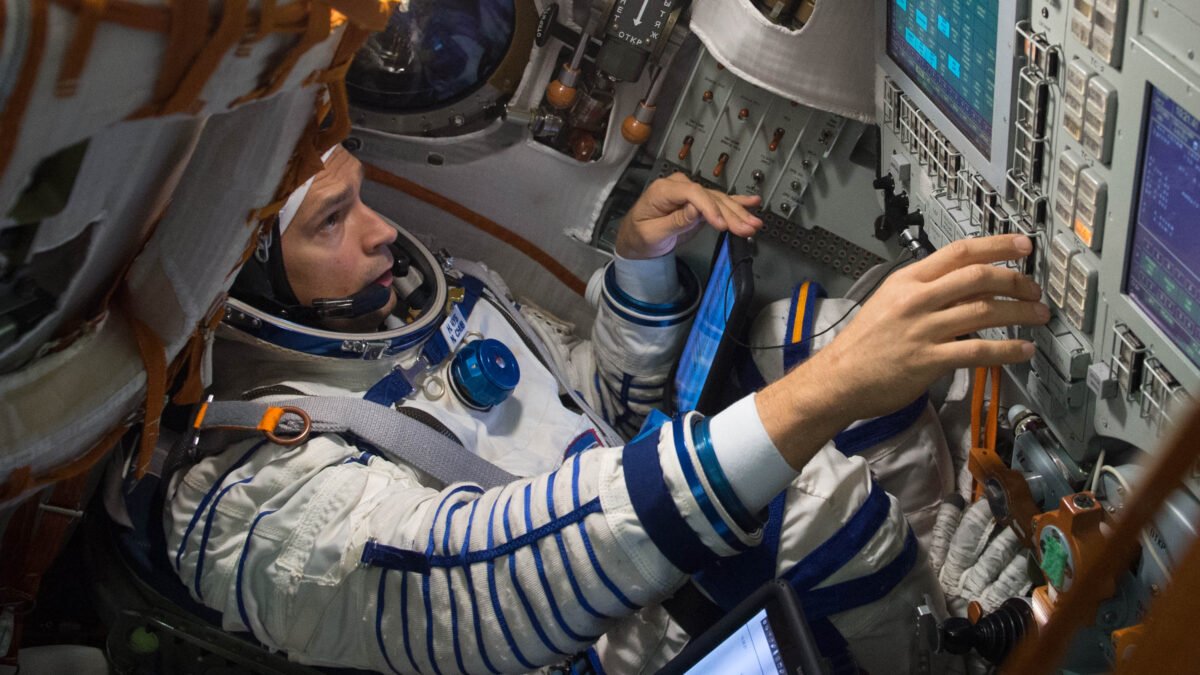AI in Space Exploration: How Technology is Expanding Our Cosmic Boundaries
Table of Contents
Introduction
Imagine you’re an astronaut hurtling through the vast expanse of space. Your mission: to explore a distant planet that could potentially harbor life. Suddenly, an unexpected asteroid storm threatens your spacecraft. In the past, this scenario might have spelled disaster. But thanks to advances in artificial intelligence, your onboard AI system quickly calculates a new trajectory, avoiding the debris and ensuring your safety. This scenario, once a figment of science fiction, is rapidly becoming a reality as AI transforms space exploration. How is AI pushing the frontiers of our cosmic knowledge and transforming our comprehension of the universe?
Mission Planning and Decision Making
A key application of AI in space exploration is optimizing mission planning and facilitating critical decision-making processes. AI systems analyze data from spacecraft sensors and telescopes, providing insights that help mission teams make informed decisions quickly. These systems can predict and respond to unexpected events, such as changes in environmental conditions or equipment malfunctions, enhancing the safety and success of missions.
Autonomous Spacecraft and Rovers
AI enables spacecraft and rovers to operate autonomously, a crucial capability for missions far from Earth where real-time communication is impossible. Autonomous rovers, equipped with machine learning algorithms, can navigate unfamiliar terrains, avoid obstacles, and conduct scientific experiments without human intervention. For example, the Mars rovers use AI to analyze rock samples and identify potential signs of past life.
Data Analysis
The immense volume of data produced by space missions can be staggering. AI helps by sifting through this data, identifying patterns, and providing actionable insights. For instance, AI algorithms analyze images from space telescopes to detect distant galaxies, exoplanets, and other celestial phenomena. This capability is essential for missions like those involving the Vera C. Rubin Observatory is expected to generate more than 60 petabytes of data.
Resource Utilization and Sustainability
AI plays a crucial role in managing resources on long-duration space missions. It monitors and optimizes the use of power, water, oxygen, and other vital resources, ensuring the sustainability of missions that last months or even years. This capability is vital for future missions to Mars and beyond, where efficient resource management is critical for survival.
Read also: AI’s Impact on the Automotive Industry: Beyond Autonomous Vehicles
Space Debris Management
As the amount of space debris increases, the risk to operational satellites and spacecraft grows. AI helps track and predict the movement of debris, allowing space agencies to make timely adjustments to avoid collisions. This capability is increasingly important as more countries and companies launch satellites into orbit.
Satellite Maintenance and Repair
AI-powered robotic systems are revolutionizing satellite maintenance. These robots can perform complex tasks such as diagnosing and repairing satellite malfunctions, extending their operational life and maximizing their scientific contributions. This technology reduces the need for costly and risky human spacewalks.
Exoplanet Exploration
Artificial intelligence has greatly enhanced our capacity to detect and analyze exoplanets. By analyzing light patterns and subtle changes in star brightness, AI algorithms can identify potential exoplanets in distant solar systems. This capability has led to the discovery of numerous new planets, expanding our understanding of the universe.
Robotics and Real-time Decision Making
Robotic spacecraft equipped with AI can conduct scientific experiments, capture images, and analyze surfaces. Advanced AI and machine learning algorithms enable these robots to make real-time decisions based on the data they collect, mitigating risks for human astronauts and enhancing the efficiency of space missions.
Health Monitoring of Astronauts
AI is also critical for monitoring the health of astronauts during space missions. AI-powered devices continuously track vital signs, detect irregularities, and provide early warnings of potential health issues. This capability is essential for ensuring the well-being of astronauts on long-duration missions.
Future Prospects of AI in Space Exploration
The future of AI in space exploration is bright and full of possibilities. AI will continue to drive innovation, enabling more complex and ambitious missions. For example, NASA’s appointment of its first Chief AI Officer highlights the agency’s commitment to integrating AI into its operations, promising advancements in mission efficiency, data analysis, and scientific discovery.
Conclusion
Artificial intelligence is not just a tool for space exploration; it is a catalyst for a new era of discovery and innovation. As AI technologies continue to evolve, their impact on our understanding of the universe will only grow. From autonomous rovers on Mars to AI-driven data analysis uncovering the mysteries of the cosmos, the fusion of AI and space exploration is pushing the boundaries of what we know and what we can achieve. As we look to the future, the question is not just how AI will transform space exploration, but how it will redefine our place in the universe.
FAQs
How is AI used in space exploration?
AI is used in various aspects of space exploration, including mission planning, autonomous operation of spacecraft and rovers, data analysis, resource management, and health monitoring of astronauts. These applications enhance mission efficiency, safety, and scientific discovery.
What are some examples of AI in space missions?
Examples include the use of AI in the Mars rovers for autonomous navigation and scientific analysis, AI algorithms analyzing data from space telescopes to detect exoplanets, and AI-powered robots performing maintenance on satellites.
What does the future hold for AI in space exploration?
The future of AI in space exploration involves more autonomous and efficient missions, advanced data analysis leading to new discoveries, and the integration of AI with other technologies to enhance the capabilities of space missions. NASA’s appointment of a Chief AI Officer indicates a strong commitment to leveraging AI for future space endeavors.





